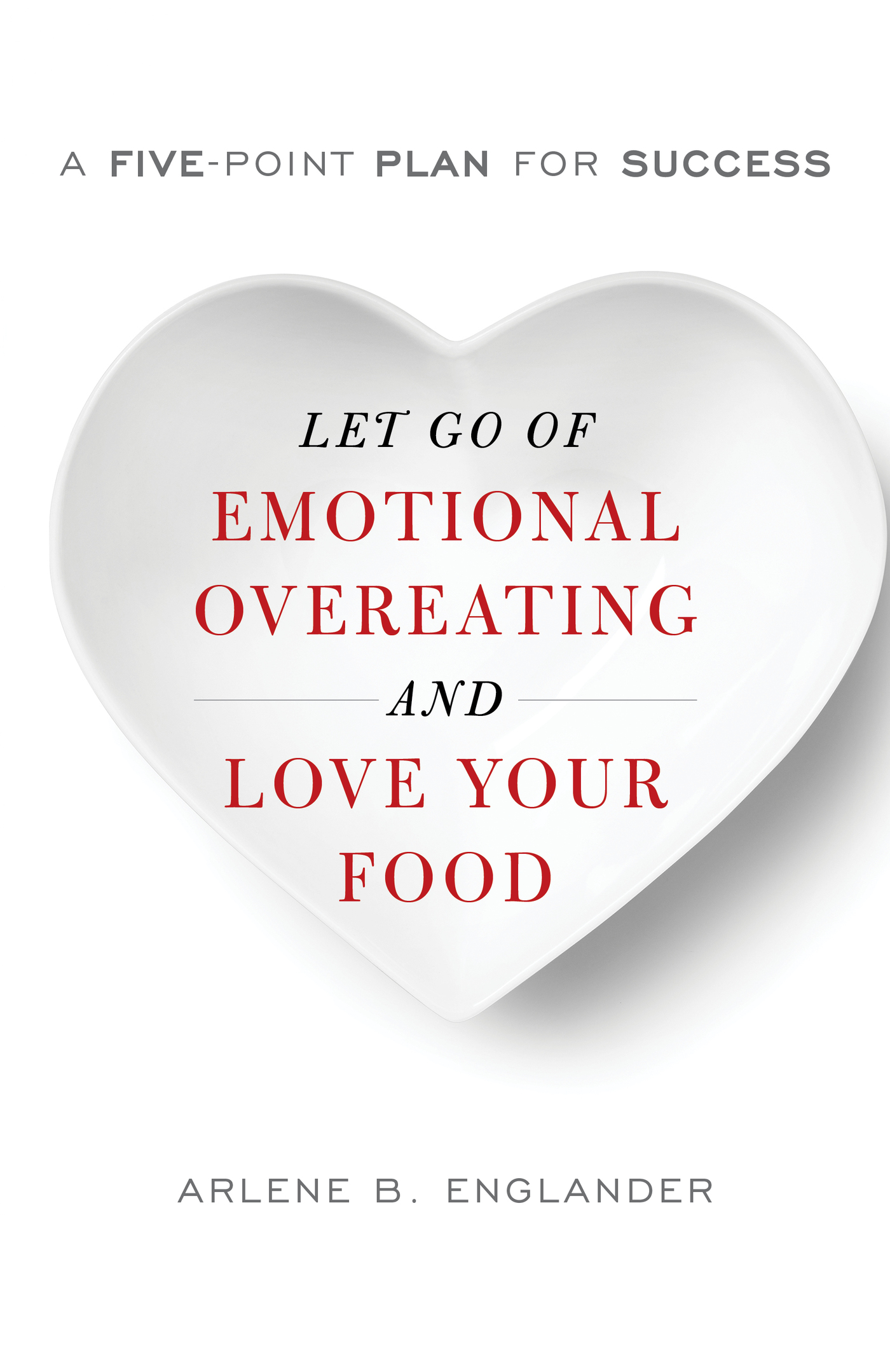Let Go of Emotional Overeating and Love Your Food
Let Go of Emotional Overeating and Love Your Food
A Five-Point Plan for Success
Arlene B. Englander
ROWMAN & LITTLEFIELD
Lanham Boulder New York London
This book is written as a source of information only. The information contained in this book should by no means be considered a substitute for the advice of a qualified medical professional, who should always be consulted before beginning any new diet, exercise, or other health program. All efforts have been made to ensure the accuracy of the information contained in this book as of the date published. The author and the publisher expressly disclaim responsibility for any adverse effects arising from the use or application of the information contained herein. The case studies included herein are based upon hundreds of actual persons. Their names, settings, in some cases events, and identifying factors have been changed to protect identities. Where gender has been indicated this is done with the understanding that gender may be changed for each character in each case study. The author has made every effort to render the individuals anonymous.
Love Your Food is a registered trademark of Arlene B. Englander, P.A., and may not be used without written permission.
Published by Rowman & Littlefield
An imprint of The Rowman & Littlefield Publishing Group, Inc.
4501 Forbes Boulevard, Suite 200, Lanham, Maryland 20706
www.rowman.com
Unit A, Whitacre Mews, 26-34 Stannary Street, London SE11 4AB
Copyright 2018 by Arlene B. Englander
All rights reserved. No part of this book may be reproduced in any form or by any electronic or mechanical means, including information storage and retrieval systems, without written permission from the publisher, except by a reviewer who may quote passages in a review.
British Library Cataloguing in Publication Information Available
Library of Congress Cataloging-in-Publication Data
Names: Englander, Arlene B., author.
Title: Let go of emotional overeating and love your food : a five-point plan for success / Arlene B. Englander.
Description: Lanham : Rowman & Littlefield, [2018] | Includes bibliographical references and index.
Identifiers: LCCN 2018001633 (print) | LCCN 2017060903 (ebook) | ISBN 9781538111192 (cloth : alk. paper) | ISBN 9781538111208 (electronic)
Subjects: LCSH: Compulsive eating. | Food habitsPsychological aspects.
Classification: LCC RC552.C65 E54 2018 (ebook) | LCC RC552.C65 (print) | DDC 616.85/26dc23
LC record available at https://lccn.loc.gov/2018001633
 TM The paper used in this publication meets the minimum requirements of American National Standard for Information Sciences Permanence of Paper for Printed Library Materials, ANSI/NISO Z39.48-1992.
TM The paper used in this publication meets the minimum requirements of American National Standard for Information Sciences Permanence of Paper for Printed Library Materials, ANSI/NISO Z39.48-1992.
Printed in the United States of America
To my loving husband; my darling daughter; and my parents, two of the kindest people I have ever known.
Introduction
Is this book for you? Let Go of Emotional Overeating and Love Your Food: A Five-Point Plan for Success is for you if you feel entrapped by emotional eating. Its for you if you ever leave a table feeling stuffed both physically with food and psychologically with self-hate. Its for you if youre drawn to food when stressed, depressed, or anxious and sense theres a better way to self-soothe, but what? Its for you if youve yo-yo dieted for decadesfantasizing about forbidden foods until a diet-ending binge replaces pounds that were lost and adds more.
This book is for you if youd like to find new freedom. Its for you if youd like to be able to eat whatever you like, savor your food, and stop just at the point of satisfaction without feeling full. Its for you if youd like to feel in control of lifes stress instead of controlled by it. Its for you if youd like to enjoy your days and evenings to the utmost, instead of abusing or obsessing about food.
Its hard to gauge to how many of us this applies, but if weight alone is any indication, the numbers are high. Most Americans need to lose weight and know the only way to do so is by eating less and moving more. Theres only one problem: they can do neither. For many, compulsive overeating is the issue that keeps them from getting to a healthy weight and staying there.
How did we arrive at this dangerous health epidemic? As early as 1999, American Demographics published the article Getting Bigger All the Timea title that certainly proved prophetic (!), reporting that
54 percent of all Americans clean their plates even when theyre full
39 percent eat when they see food
20 percent eat when depressed
19 percent continue to eat when stuffed
Does any of this feel familiar?
While we dont have stats on how many of us eat emotionally, a Pew Report from 2006 indicates that six in ten Americans say they eat more than they should, either often (17 percent) or sometimes (42 percent).
And according to the Centers for Disease Control and Prevention (CDC), as of 2014, 37.9 percent of adults twenty years of age and older were obese, and 70.7 percent were either overweight or obese, while in an equally disturbing trend, 9.4 percent of two- to five-year-olds, 17.4 percent of six- to eleven-year-olds, and 20.6 percent of adolescents were in the heaviest category of weight.
If you can relate, then clearly you have company. And having been there and done that in the past, I can, too. Yes, this is a prevalent problem. But there are answers.
Let Go of Emotional Overeating and Love Your Food is written expressly to help you if youre trying to change the behaviors listed above. It offers specific strategies on how to savor food and be satisfied with less, minimize stress, maximize enjoyment, and make healthy habits like exercise really happen. Most important, the books main focus is teaching you how to stop eating when youre just exactly full. This habit can be learned and youll love the results.
The basic theme is simple. By developing an awareness of what constitutes compulsive overeating and by learning how to eat in a more pleasure-oriented, self-regulated manner, youll not only enjoy food more but will also gain control. An additional emphasis is on creating and maintaining a better balance between the joys derived from food and life.
A licensed psychotherapist for more than twenty years and a former emotional overeater, I include, when appropriate, case illustrations and personal experiences. I also use humor and anecdotes as an effective teaching tool.
Having earned an MBA, I also incorporate numerous devices to help you operationalize the advice given, such as acronyms for mealtime techniques and for tracking your progress in following the plan every day. A unique aspect to this program is the one-minute monitor that is anchored into the readers mind by two quick questions, the first of which includes a four-letter acronym, making it possible, daily, hourly, and instantaneously, to review and tweak ones efforts in following this plan, and the second refers to a joke and a play on words, reminding the reader of point number 5 in the plan:
Also unique is the books emphasis on encouraging enjoyment so that this is a plan youll want to pursue permanently!
As a former emotional overeater myself, I know how painful those experiences can be. And its often undetected. I completed an entire course of psychoanalysis without realizing that everybody doesnt obsess about food all day, eat voraciously for several days in a row, and then survive on coffee or Diet Coke and cigarettes to compensate for the calories for the next few days, or suffer the deprivation of restrictive diets that only end in a binge. Having been entrapped in that cycle, its gratifying to lead others to new freedom.
Next page
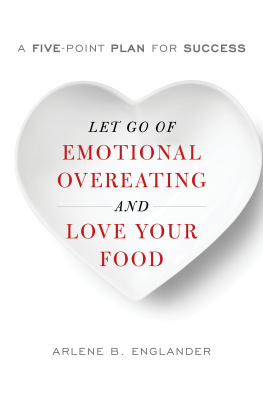
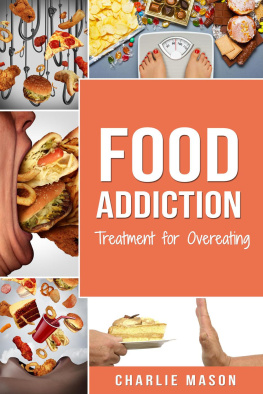
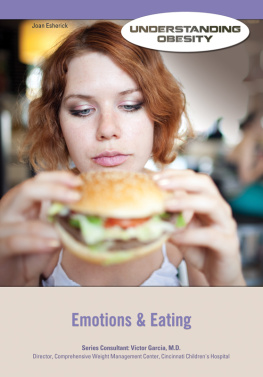
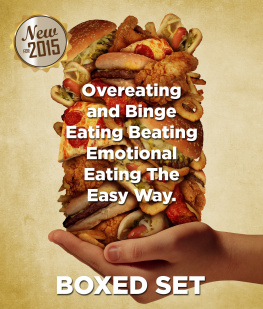

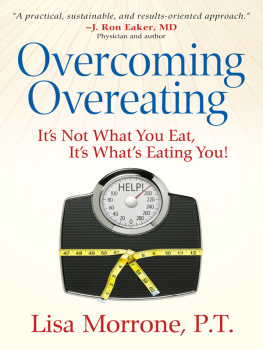
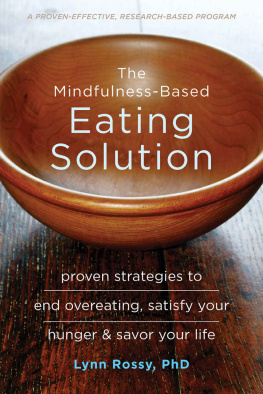
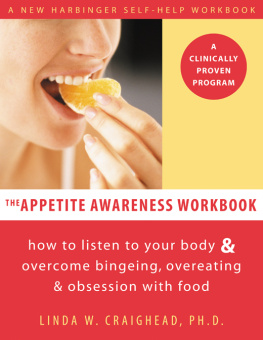
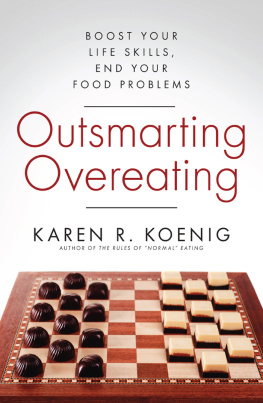
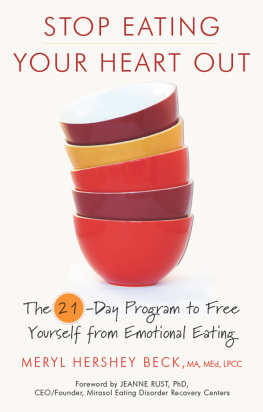
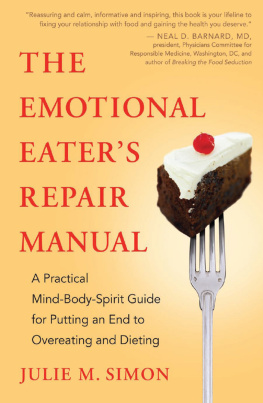
 TM The paper used in this publication meets the minimum requirements of American National Standard for Information Sciences Permanence of Paper for Printed Library Materials, ANSI/NISO Z39.48-1992.
TM The paper used in this publication meets the minimum requirements of American National Standard for Information Sciences Permanence of Paper for Printed Library Materials, ANSI/NISO Z39.48-1992.